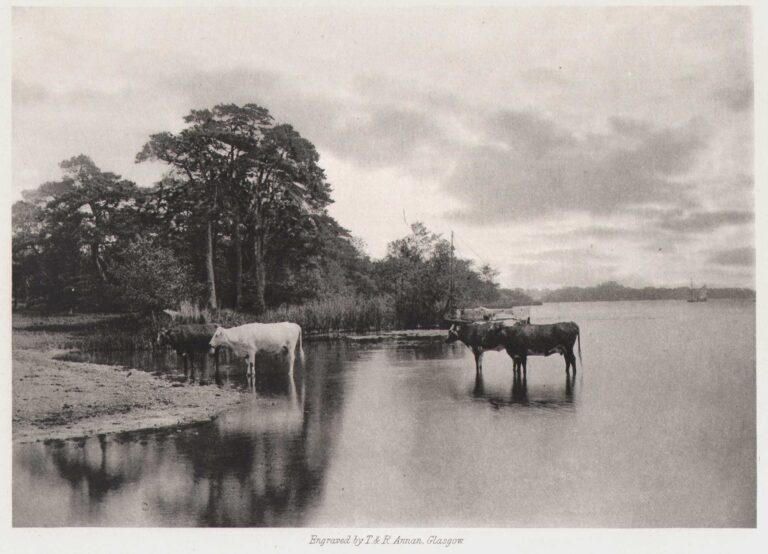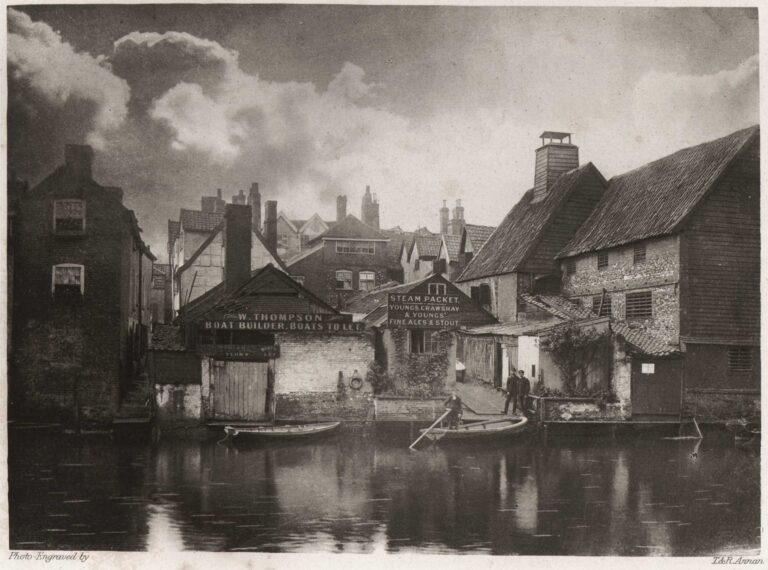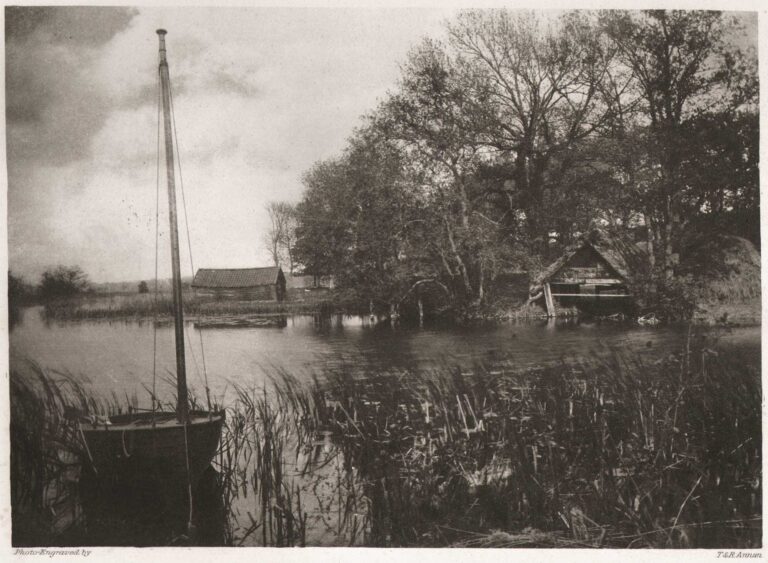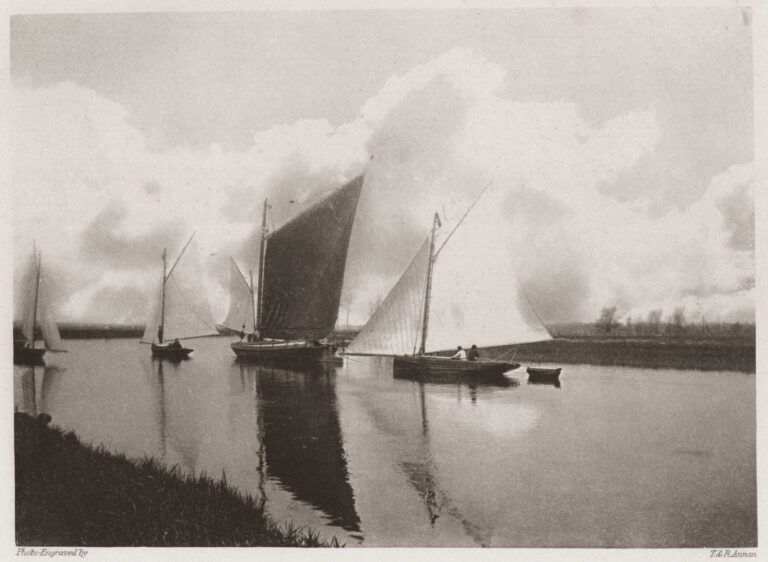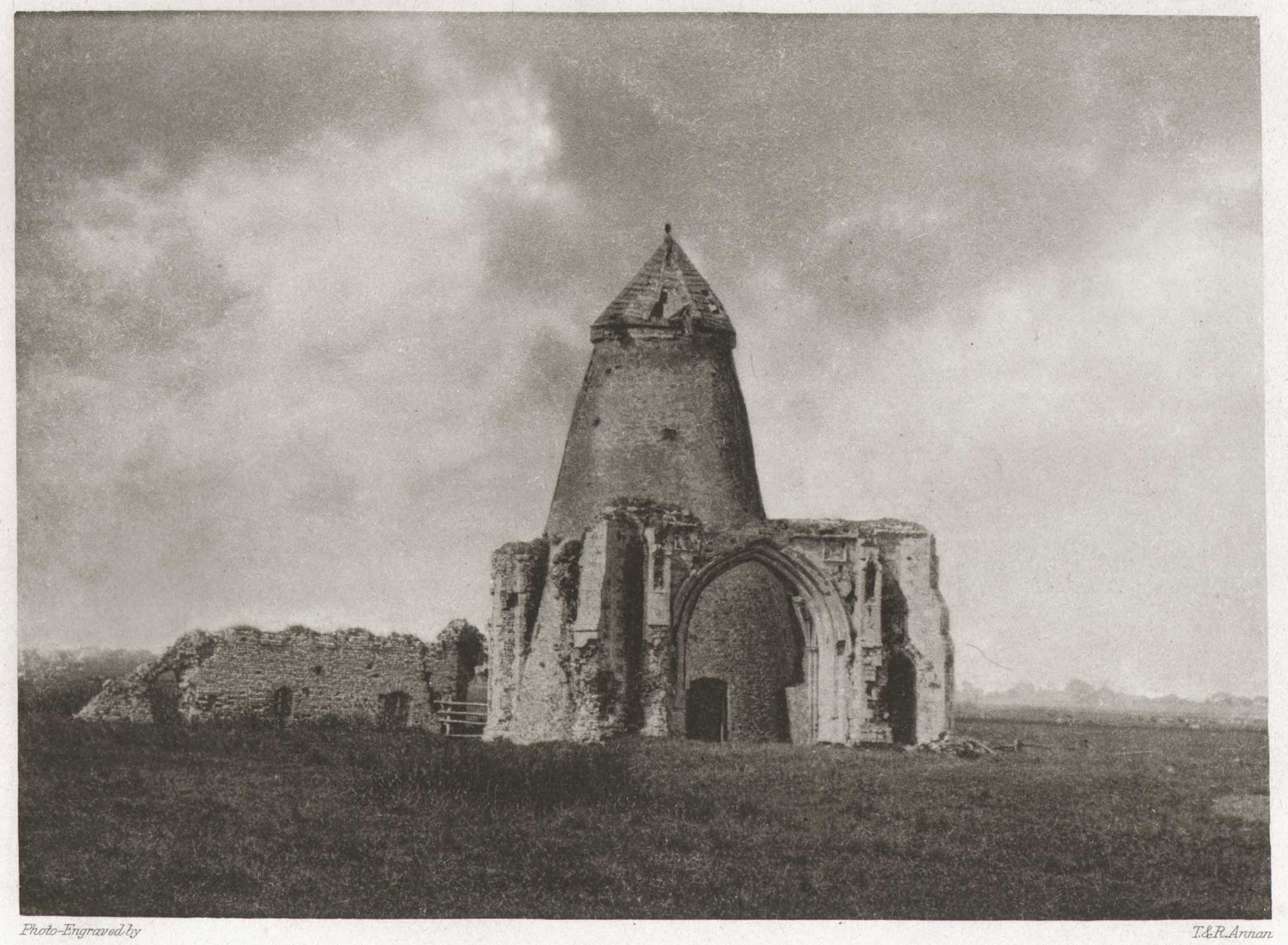
St. Benedict’s Abbey | St Benet’s Abbey, Norfolk
“This abbey was of yore a very extensive monastery, and its abbot a man of power. Its site was an island of gravelly soil amid a morass, and the only means of access to it was by water, or along a causeway which the monks constructed to the village of Horning. Now the ruins are very scanty. Over a fine arch a windmill has been built, and long since also become a ruin.” ⎯ G. Christopher Davies, 1883 (1.)
Shown are the ruins of what is known as St Benet’s Abbey. At the time this photograph was taken, around 1882, the cap from the large windmill built within the abbey gatehouse in the second half of the 18th century was mostly intact.
St Benet’s Abbey, also known as St Benet’s at Holme or St Benet Hulme, was a medieval monastery of the Order of Saint Benedict situated at Cow Holm in Horning, Norfolk, England. It lay on the River Bure within the Broads.[1] St Benet is a medieval English version of the name of St Benedict of Nursia, hailed as the founder of western monasticism. At the period of the Dissolution of the Monasteries the abbey‘s possessions were in effect seized by the crown and assigned to the diocese of Norwich. Though the monastery was supposed to continue as a community, within a few years at least the monks had dispersed. Today there remain only ruins. – Wikipedia accessed 2025
George Christopher Davies: 1849-1922
Davies was “a prolific photographer and writer who played an important role in encouraging popular awareness of the Norfolk Broads.” (2.) The following biography of the artist courtesy: Norfolk Through a Lens: A guide to the Photographic Collections held by Norfolk Library & Information Service –
Born in Shropshire, Davies practised as a solicitor for a time; he first came to Norfolk in 1871 to serve part of his articles. He was later to become Chief Clerk at Norfolk County Council in 1906, also serving as Clerk of the Peace. In his private life he was a nature lover, sportsman and photographer. His skills as a writer did much to popularise the Norfolk Broads as a rural idyll and holiday destination. When he was 27 he wrote ‘The Swan and her Crew’ an adventure story for boys set in the Norfolk Broads which created a great interest and enthusiasm for the area. His major work ‘Handbook to the Rivers and Broads of Norfolk and Suffolk’ was published in 55 editions and contained 12 of his own photographs. Davies also produced other books about the Broads, sailing, Belgian waterways, natural history, fishing, adventure books for children and even some on government administration. Towards the end of his life he acquired Burnt Fen Broad and spent many hours there during his retirement.
- Excerpt, G. Christopher Davies: Norfolk Broads and Rivers: Or, The Water-ways, Lagoons, and Decoys of East Anglia, William Blackwood & Son, Edinburgh and London, p. 58
- George Christopher Davies: Wikipedia: accessed September, 2025
